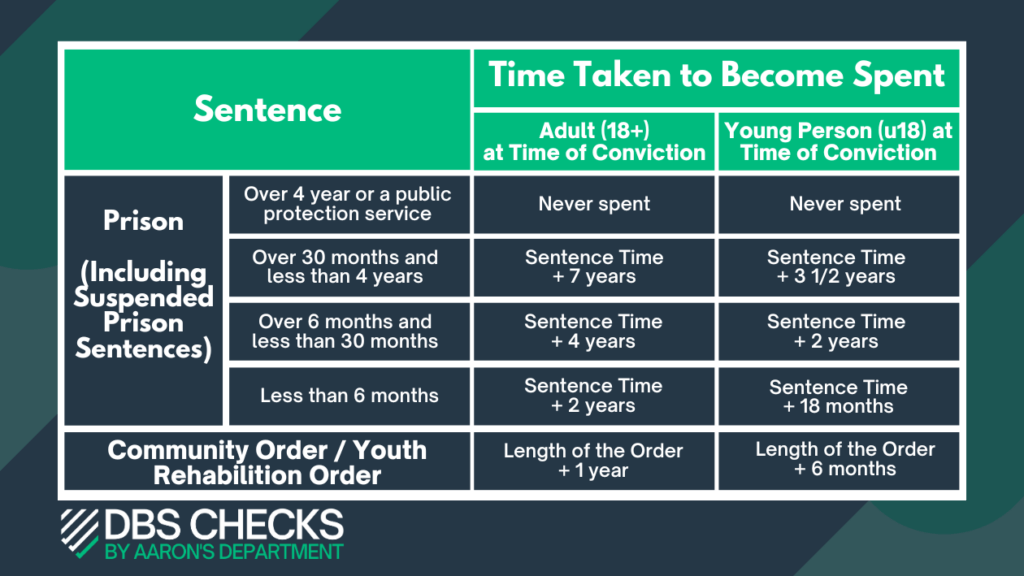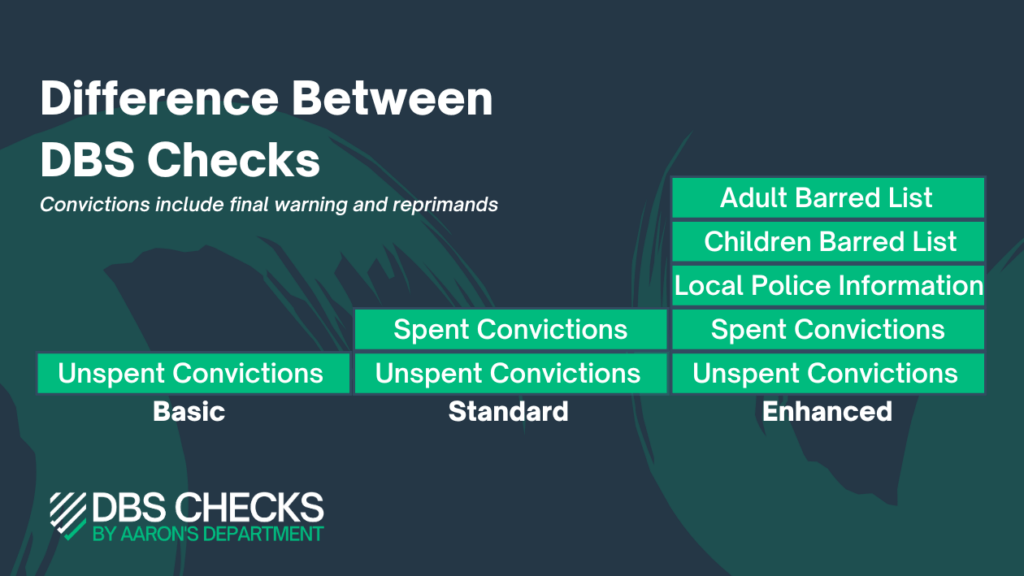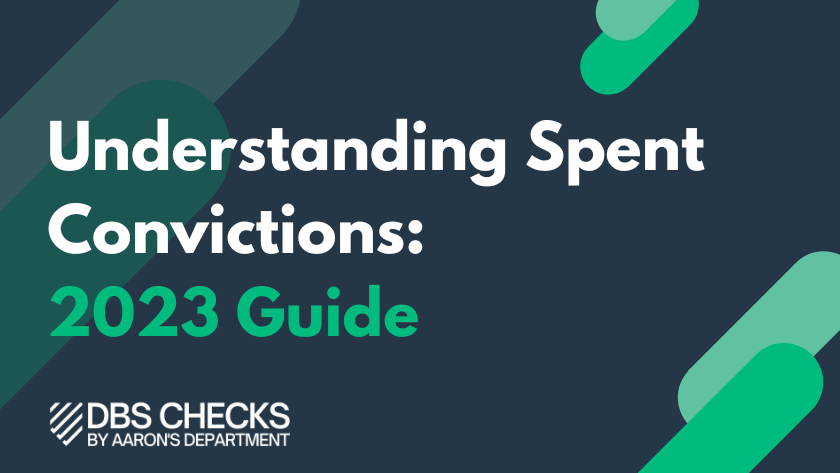Introduction:
When it comes to criminal records and DBS checks, spent convictions play a significant part of what can be seen or looked for on a DBS Check. Understanding what spent convictions are, how they show on Disclosure and Barring Service (DBS) checks, and what they can mean is crucial for both employers and individuals seeking employment.
What are Spent Convictions?
Spent convictions refer to criminal records that are considered “spent” or no longer required to be disclosed to potential employers or other parties. The purpose behind spent convictions is to allow individuals with past criminal convictions to reintegrate into society without being unfairly stigmatised or discriminated against due to their previous actions. The Rehabilitation of Offenders Act 1974 (ROA) governs the rules surrounding spent convictions in the UK.
Legislation and Rehabilitation Periods:
The Rehabilitation of Offenders Act 1974 establishes rehabilitation periods, which vary depending on the severity of the offence committed. These periods determine how long it takes for a conviction to become spent. After the rehabilitation period has passed, individuals are legally entitled to withhold information about their spent convictions in most circumstances. The length of rehabilitation periods can vary from a few months to several years, depending on the offence committed.
We have a useful table below which shows you how long a conviction can take to become spent.


Spent Convictions and DBS Checks:
DBS checks, formerly known as Criminal Records Bureau (CRB) checks, are essential tools used by employers and organisations to assess an individual’s suitability for specific roles or positions. A DBS check provides information on an individual’s criminal history, including both spent and unspent convictions, as well as cautions or other criminal behaviour. However, there are different levels of DBS checks, and the level of disclosure varies based on the position being applied for.
Standard DBS Checks:
Standard DBS checks are often required for roles involving positions of trust, such as working with vulnerable groups or handling sensitive information. These checks reveal spent and unspent convictions, as well as cautions, reprimands, and final warnings held on the Police National Computer (PNC).
Enhanced DBS Checks:
Enhanced DBS checks are typically necessary for roles that involve close contact with vulnerable individuals, such as working with children or the elderly. These checks provide the most comprehensive disclosure of an individual’s criminal record, including spent and unspent convictions, as well as any relevant information held by local police forces.


Exceptions and Exclusions:
Certain professions and occupations are exempt from the Rehabilitation of Offenders Act 1974, which means that individuals may be required to disclose their convictions even if they would otherwise be protected by the legislation. Such roles include positions in law enforcement, the criminal justice system, and working with vulnerable groups where specific exceptions apply.
Reintegrating Into Society
Spent convictions are a legal mechanism that enables individuals with past criminal records to reintegrate into society without constant discrimination. Understanding the concept of spent and unspent convictions, their appearance on DBS checks, and the legislation surrounding them is essential for both individuals and employers. The Rehabilitation of Offenders Act 1974 sets out the rules and rehabilitation periods that determine when a conviction becomes spent. Once a conviction is spent, individuals are generally not required to disclose it in most circumstances.
Employer Information
When conducting DBS checks, it’s important to be aware of the different levels of disclosure. Standard DBS checks reveal both spent and unspent convictions, as well as cautions, reprimands, and final warnings held on the Police National Computer. Enhanced DBS checks, on the other hand, provide the most comprehensive disclosure and include information from local police forces.


Conclusion
In conclusion, spent convictions are an important aspect of criminal record disclosure. They allow individuals to put their past behind them and move forward without the burden of past mistakes. Understanding how these convictions appear on DBS checks, the legislation surrounding them, and their implications is crucial for both individuals and employers
Further Reading
Spent And Unspent Convictions, What’s The Difference?
